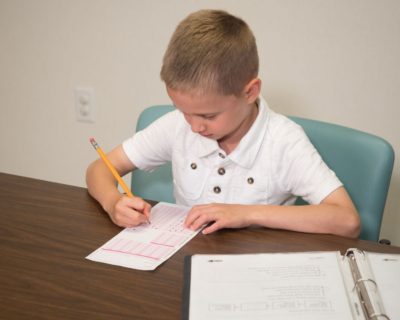Children With Amblyopia and Strabismus Take Longer To Complete Answer Forms
MedicalResearch.com Interview with:
Krista Kelly, PhD
Postdoctoral Fellow
Crystal Charity Ball Pediatric Vision Evaluation Center
Retina Foundation of the Southwest
Dallas, TX 75231
MedicalResearch.com: What is the background for this study? What are the main findings?
Response: We were interested in seeing whether the fine motor deficits typically seen in amblyopia (lazy eye) and strabismus (crossed eyes) translate to an academic setting. Namely, transferring answers to a multiple choice answer form widely used in standardized testing in schools. Children with amblyopia and strabismus took about 28% longer than their peers transferring answers to a multiple choice answer form, even though they have good vision in one or both eyes.
MedicalResearch.com: What should readers take away from your report?
Response: We have recently shown that children with amblyopia read slowly compared with their peers, even though one eye has good vision. If a child is slow at reading and slow at transferring answers, then they may have trouble finishing tests on time, hindering their academic success.
MedicalResearch.com: What recommendations do you have for future research as a result of this work?
Response: Future research should determine the underlying causes of fine motor deficits in children with amblyopia and strabismus so that they can be prevented or treated.
MedicalResearch.com: Is there anything else you would like to add?
Response: Other fine motor deficits, like putting pegs in holes, have been reported to be related to deficits in 3D depth perception (i.e., stereoacuity). We were surprised that deficits in 3D depth perception in our study were not related to the time it took children to transfer answers to the multiple choice answer form. The study was funded by the National Eye Institute (NEI) and was conducted at the Retina Foundation of the Southwest.

Related Articles
Voelcker Fund Gives $100,000 in Support of Texas 1000 Project Retina Foundation Announces 2023 Visionary Luncheon and Sets $1 Million Fundraising Goal National Eye Institute Awards $949,804 for a 5-Year Study of RP Recently@Retina Newsletter February 2024 Discovering New Therapies for AMD